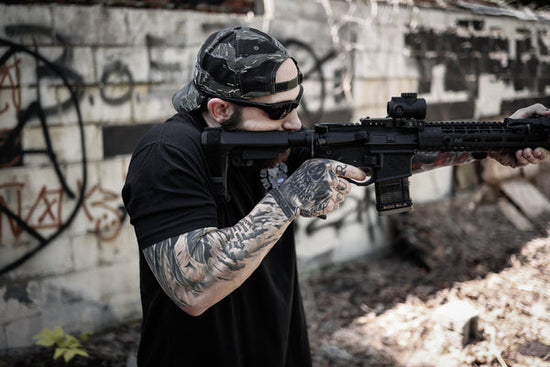Transitioning from Military to Civilian Life: Understanding PTSD
"Civilians may not be aware of the unique challenges that separating from military service and returning to civilian life can present."

IS PTSD normal? how should I feel when I notice it?
"According to the National Center for PTSD, a program of the U.S. Department of Veterans Affairs, about seven or eight of every 100 people will experience PTSD in their lifetime. Women are more likely than men to develop PTSD."
What is PTSD and How Does it Affect Veterans?
As a veteran, the transition from military to civilian life can be a difficult and challenging process. One of the most significant obstacles veterans may face is post-traumatic stress disorder (PTSD). PTSD is a mental health condition that can develop after experiencing or witnessing a traumatic event. It can manifest in a variety of symptoms, including flashbacks, nightmares, and feelings of guilt or shame.
PTSD can be a debilitating condition that can affect veterans in a number of ways. It can cause emotional and physical symptoms, such as anxiety, depression, and irritability. It can also lead to difficulty sleeping, difficulty concentrating, and a lack of interest in activities that were once enjoyed.


Symptoms of PTSD and How to Identify them
Symptoms of PTSD can vary from person to person, but some common signs include:
- Intrusive thoughts or memories of the traumatic event
- Avoiding places, people, or activities that remind you of the trauma
- Negative changes in mood and cognition, such as feeling guilty or ashamed
- Hypervigilance, feeling easily startled or on edge
- Nightmares or flashbacks
Resources and Support Available for Veterans with PTSD
If you are a veteran experiencing symptoms of PTSD, it is important to know that you are not alone. There are many resources and support systems available to help you cope with this condition. Some options include:
- Veterans Affairs (VA) hospitals and clinics, which offer a range of mental health services for veterans trained to deal with soldiers experiencing PTSD signs
- Veterans service organizations, which provide support and assistance to veterans and their families
- Support groups specifically for veterans with PTSD
- Therapy or counseling, can be beneficial in working through the trauma and developing coping mechanisms.


Combat Iron Apparel is proud to support veterans and we hope this information is helpful for anyone going through the transition from military to civilian life. Remember, help is available, and there is no shame in seeking it. PTSD can happen to anybody, for any reason and you should always feel proud to admit you should seek help.
According to the National Center for PTSD, a program of the U.S. Department of Veterans Affairs, about seven or eight of every 100 people will experience PTSD in their lifetime. Women are more likely than men to develop PTSD.


























Thanks for your service and supporting our Troops! We need more small businesses like you in this country. Great Article and so much helpful information.
Great read! Thank you so much for spreading the word about PTSD!
This is why I will always support Combat Iron!
Leave a comment